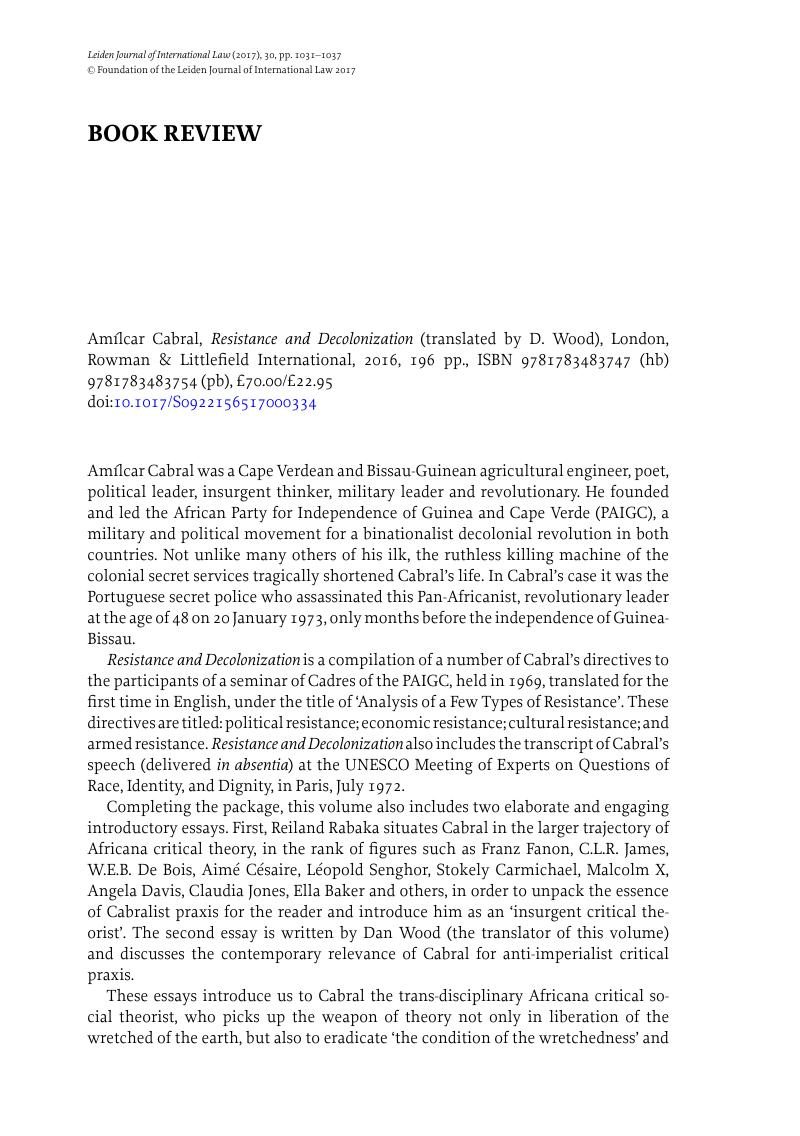No CrossRef data available.
Published online by Cambridge University Press: 15 June 2017

1 R. Rabaka, ‘The Weapon of Critical Theory: Amílcar Cabral, Cabralism, and Africana Critical Theory’, in A. Cabral, Resistance and Decolonization (translated by D. Wood) (2016), 3 at 22.
2 Ibid., at 12.
3 D. Wood, ‘Imbrications of Coloniality: An Introduction to Cabralist Critical Theory in Relation to Contemporary Struggles’, in Cabral, supra note 1, 43 at 56–7.
4 For an engaging discussion on ‘distributed agency’ between human and non-human actors see J. Bennett, Vibrant Matter: A Political Ecology of Things (2010); see also D. Coole and S. Frost (eds.), New Materialism: Ontology, Agency and Politics (2010).
5 Wood, supra note 3, at 59.
6 A. Cabral, Resistance and Decolonization (translated by D. Wood) (2016), 148.
7 Ibid., at 76.
8 Ibid., at 166.
9 Ibid., at 116.
10 Ibid.
11 Ibid., at 123.
12 E.W. Said, Representations of the Intellectual (1996), 41.
13 Cabral, supra note 6, at 117.
14 H. Matar, The return: Fathers, sons and the land in between (2016), 110.
15 Rabaka, supra note 1, at 17–20.
16 Cabral, supra note 6, at 113.
17 Rabaka, supra note 1, at 22.
18 Cabral, A., ‘National liberation and culture’, (1974) 45 Transition 12, at 16CrossRefGoogle Scholar.
19 Ibid.